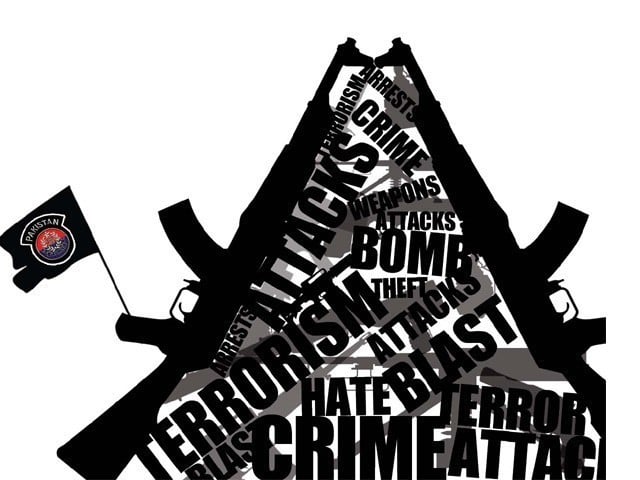
Pakistan on Thursday toughened its anti-terrorism laws by introducing as many as a dozen amendments into the legislation which proposes longer detention for suspects and accepts electronic evidence as well as trials via video link.
Suspects can now be held for up to three months, eight weeks longer than envisaged under the Anti-Terrorism Act. Through another amendment, robust new measures will be adopted for the protection of witnesses, judges and prosecutors.
Over a dozen changes have been made in the Anti-Terrorism Act 1997 (XXVII of 1997), through a presidential ordinance, as the National Assembly and Senate are not currently in session.
President Mamnoon Hussain promulgated the ordinance by excercising powers conferred to him by clause (1) of article 89 of the Constitution. The ordinance will be called the Anti-terrorism (Amendment) Ordinance 2013, and shall come into force at once.

Following the amendment, text messages, telephone calls, emails, etc, can be used as evidence against suspected terrorists and in criminal cases, such as extortion, targeted killing and kidnappings for ransom.
In addition to this, provincial governments have been asked “to take necessary steps to ensure that prisoners in jails do not have access to mobile phones.”
In order to enhance the scope and canvass of the act, section 11EEEE of the Act XXVII of 1997 has been amended through substitution of sub-section (1) which reads: “(1) The government or, where the provisions of section 4 have been invoked, the armed forces or civil armed forces, as the case may be, subject to the specific or general order of the government in this regard, for a period not exceeding three months and after recording reasons thereof, issue order for the preventive detention of any person who has been concerned in any offence under this act relating to the security or defence of Pakistan or any part thereof, or public order relating to target killing, kidnapping for ransom, and extortion, or the maintenance of supplies or services, or against whom a reasonable complaint has been made or credible information has been received, or a reasonable suspicion exists of his having been so concerned, for purpose of inquiry.”
In case a detention order is issued by the armed forces or civil armed forces under sub-section (1), “the inquiry shall be conducted by the JIT [joint investigation team] comprising members of armed forces or civil armed forces, as the case may be, intelligence agencies and other law enforcement agencies, including a police officer not below the rank of Superintendent of Police.”

These amendments, the ordinance said, “shall remain in force for such a period as may be notified by the government from time to time, provided that such period shall not exceed two years from the commencement of the enactment of this ordinance by Parliament.”
Protection for witnesses and legal staff
Although measures for the protection of judges, prosecutors and witnesses already exist, the ordinance has introduced several other measures by amending section 21 of the Act XXVII of 1997.
The measures include: “(a) screens may be used during trial to shield witnesses, judges and prosecutors from public view; (b) trials may be held in jail premises or through video link; (c) witness protection programmes may be established by the government through law or rules.”
The ordinance, through an amendment in section 27, Act XXVII of 1997, says inncentive systems shall be introduced by provincial governments to provide appropriate rewards to investigating officers who conduct successful investigations.
Meanwhile, amendments in section 28, Act XXVII of 1997 allow the government to transfer a case to any other place in Pakistan.
A newly introduced sub section reads: “(1A) Where it appears to the government that it would be in the interest of justice or expedient for protection and safety of judges, witnesses or prosecutors, it may apply to the chief justice of the high court concerned for the transfer of a case from an anti-terrorism court falling within its jurisdiction to an anti-terrorism court in any other place in Pakistan.”
Another new sub section reads: “(3) The Federal Government may in the interests of justice and for the protection and safety of witnesses and investigators, transfer the investigation of any case from one place to any other place in Pakistan; (5) On completion of investigation and before submission of report under section 173 of the Code, the federal government may direct that the case falling in the jurisdiction of a particular anti-terrorism court may be forwarded for trial to another anti-terrorism court anywhere in Pakistan, as may be specified by the federal government in this behalf, in the public interest or for the safety and protection of judges, public prosecutors or witnesses.”
An amendment in section 19 stipulates that the offences under this act shall be investigated “by a police officer not below the rank of Inspector or, where the Government deems it necessary, by a joint investigation team to be constituted by the government comprising the investigating officer of police not below the rank of Inspector, and officers from intelligence agencies and other law enforcement agencies. The investigating officer or the JIT, as the case may be, shall complete the investigation in respect of cases triable by the court within 30 working days.”
“(7) The court shall, on taking cognisance of a case, proceed with the trial from day-to-day and shall decide the case within seven days, failing which the matter shall be brought to the notice of the chief justice of the high court concerned for appropriate directions, keeping in view the facts and circumstances of the case.”
Published in The Express Tribune, October 11th, 2013.
COMMENTS (8)
Comments are moderated and generally will be posted if they are on-topic and not abusive.
For more information, please see our Comments FAQ





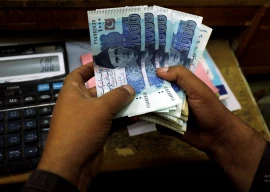
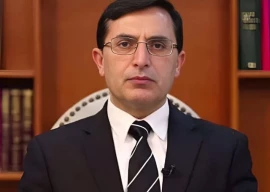


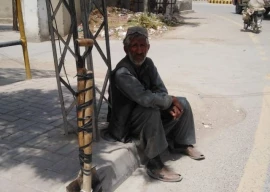
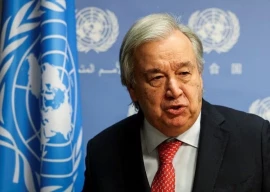






Trust the government to make the least useful decision. All accounts can be hacked very easily, wait for the investigation when a high ranking official gets in trouble because of a hacker.
Our security agencies are so pious and obedient that they do not need such laws. Just give them orders and they will capture, try and execute instantly any one who the POWER CIRCLE FAMILIES OF PAKISTAN want to get rid off. Later the court will do the rest to pacify the grieved families. Remember that the Nawaz Sharif, younger Shahbaz, Benazir and Zardari all have used forces to silent who ever they want to. Even court have tried Shahbaz for this.
What we really need is honest implementation of these laws by the state machinery.
PMLN has the credit of introducing Anti-Terror Act during its previous tenure in 1997 and once again it is PMLN Government that has made significant amendments in the law to bring it at par with the modern tactics used by terrorists. On the other hand, dictator Mush and his NRO-beneficiary PPP government did nothing serious to curb terrorism.
Arrest, detention and interrogation were always better in Pakistan than the actual trial and punishment. Can anyone tell me what happened to the 4 people convicted of mass murder and handed death sentences during the Zardari government? Why are they still rotting in jail instead of being 6 feet under. Or what happened to the rapists of the 3 year old girl, who were given death sentences and then disappeared after being granted bail at their appeal hearing. If we don't carry out the punishment what's the use of detention, be it pre-trial or post-trial??
At long last! What took them so long? Pakistan must be last country on Earth to do this.
We condemn these new laws.
Thank God this was far too late coming now let's see implementation and execution